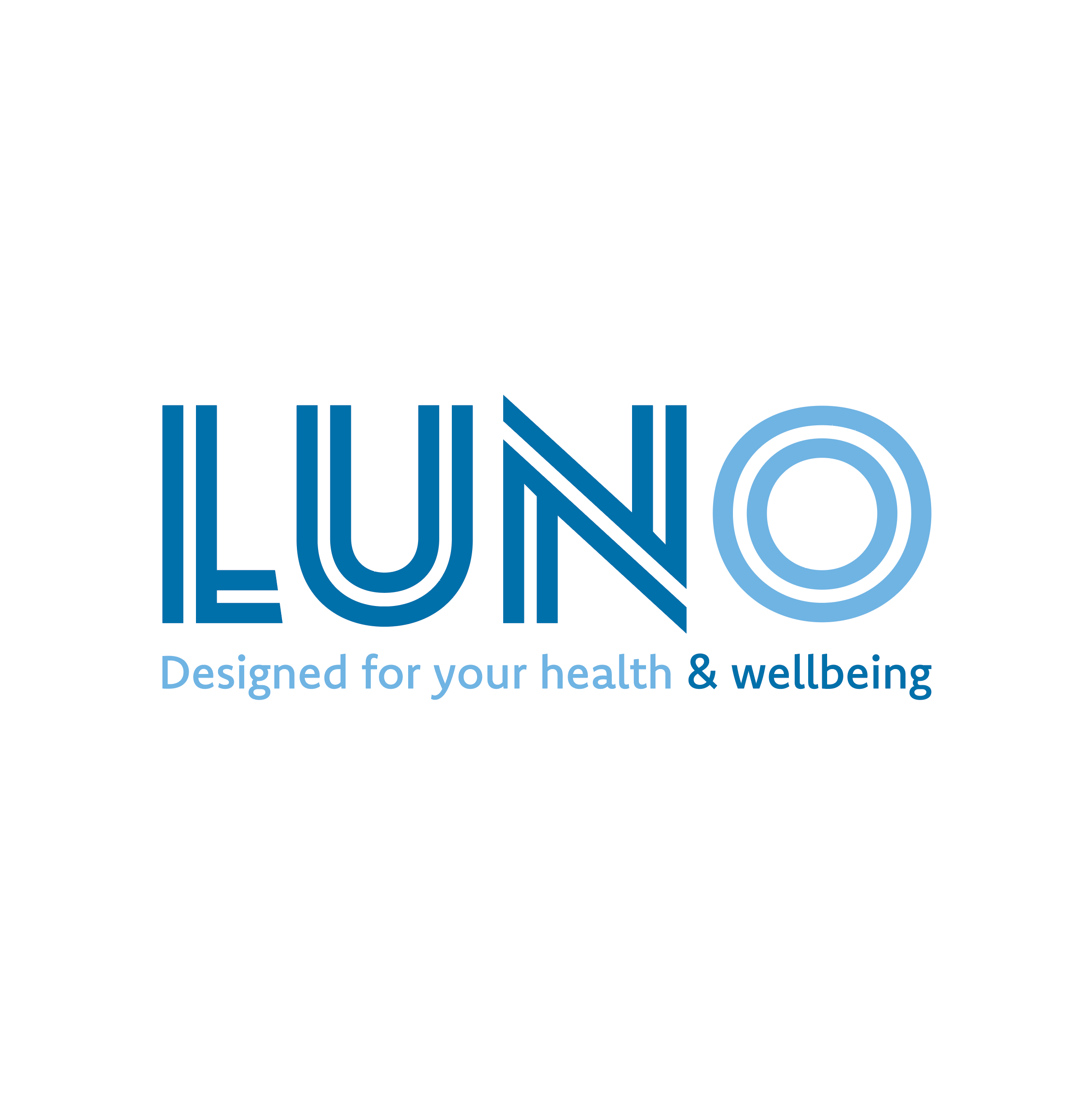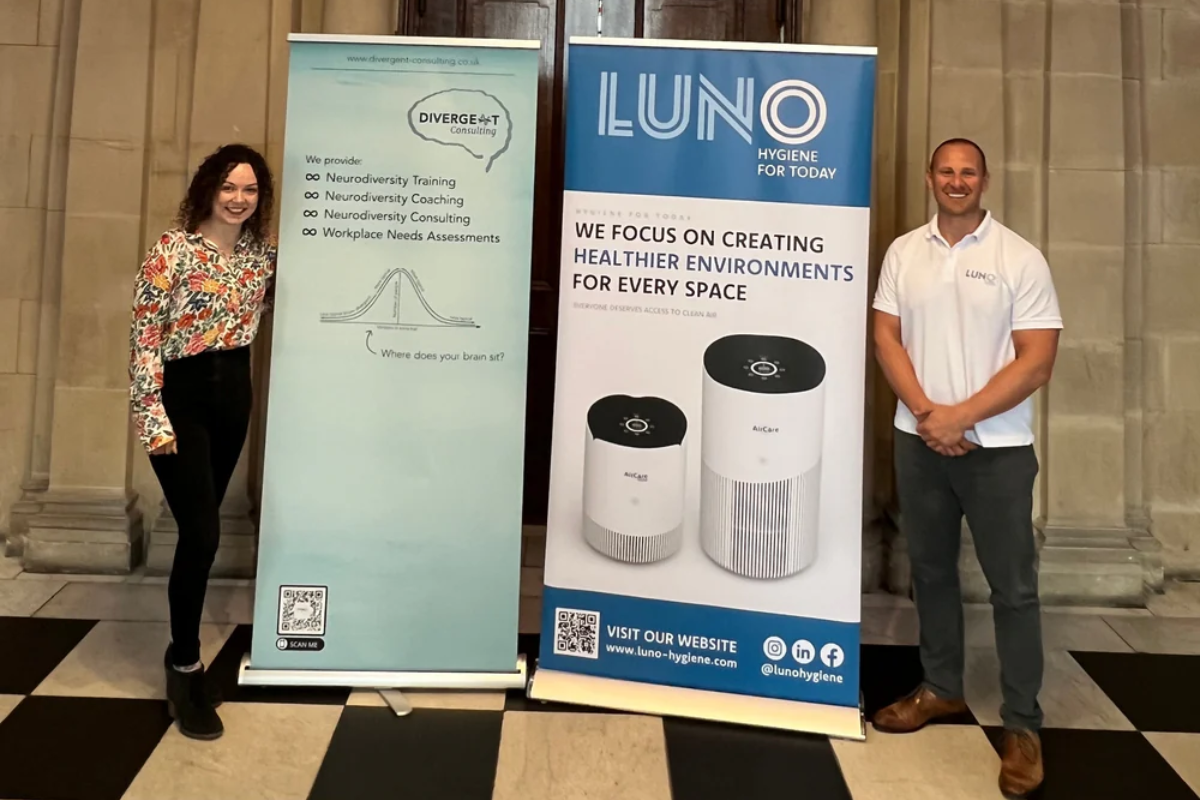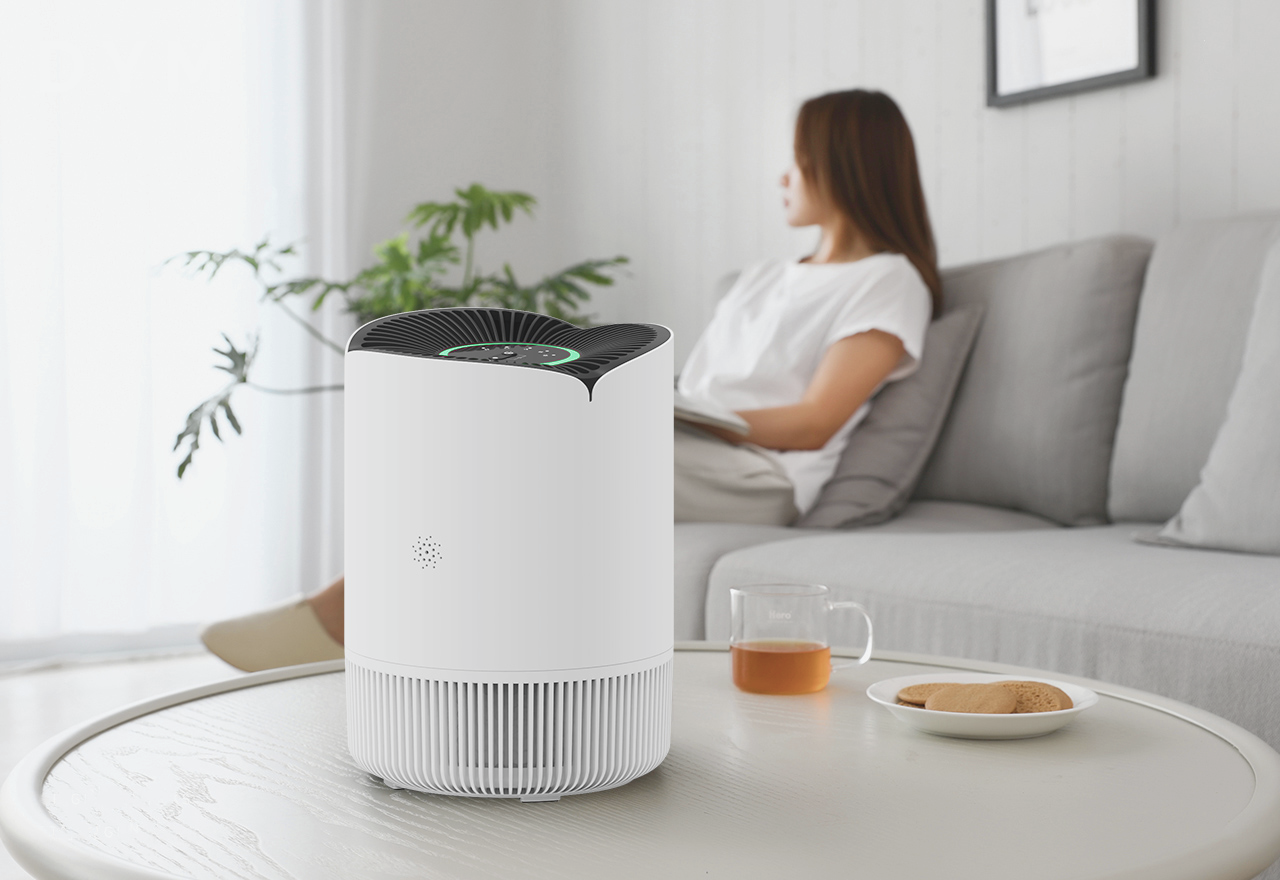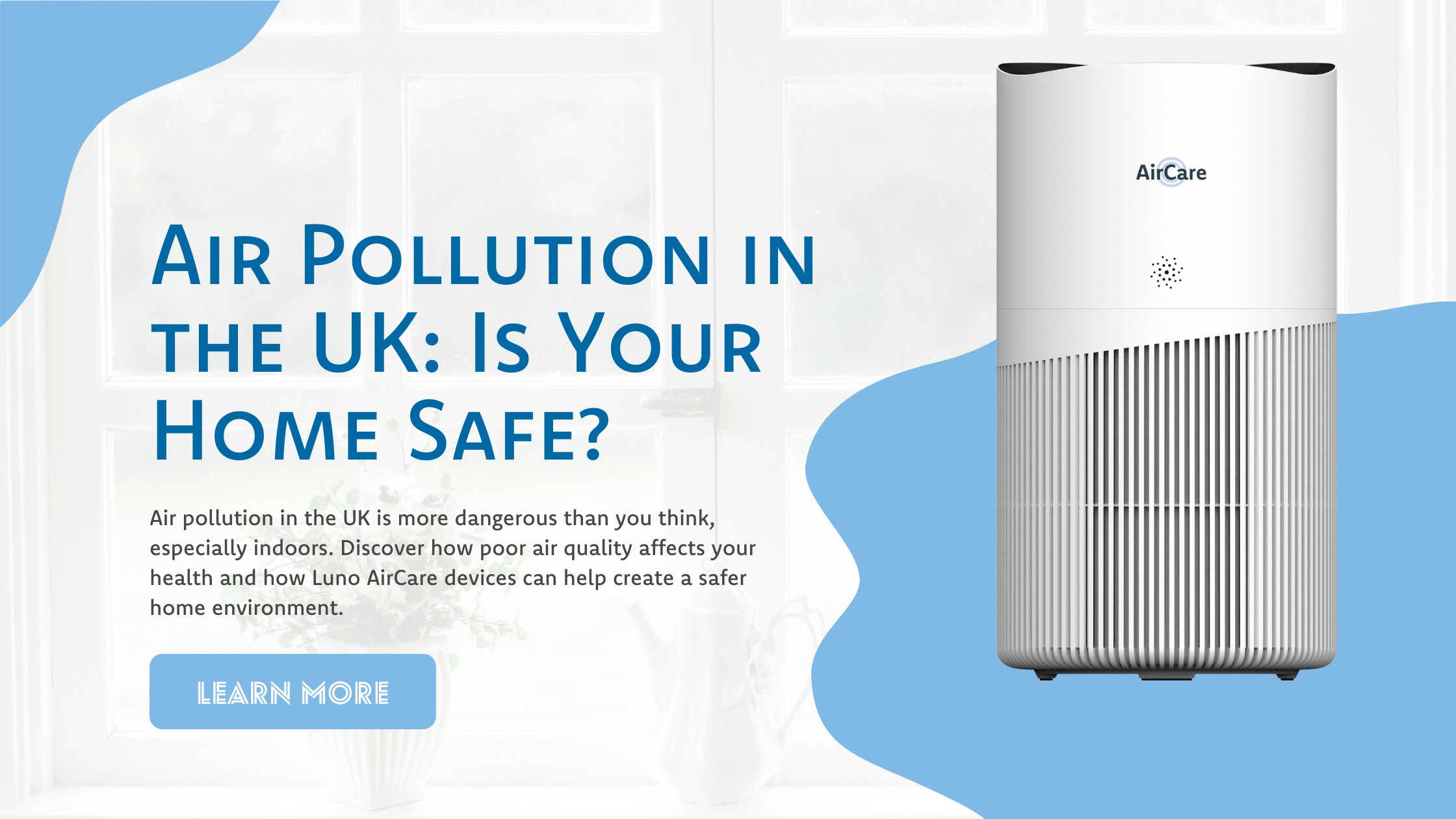What does clean air have to do with neurodiversity? More than you’d think.
When Daniel Wells, founder of Luno Hygiene, met with neurodiversity consultant Rosie Brighty, they quickly landed on a shared concern: indoor air quality (IAQ) is rarely talked about, but it should be, especially when it comes to supporting neurodivergent people.
We’re all pretty used to hearing about noise and lighting in sensory environments. But the air? Not as much. And yet, it’s often one of the biggest hidden factors affecting how we feel and function every day.
Neurodivergent brains experience the world differently
The term “neurodivergent” includes people with autism, ADHD, dyslexia, dyspraxia, sensory processing differences, and more. Sensory input can feel very different for neurodivergent people, what’s just a faint smell to one person might be completely overwhelming to another.
So, while organisations are getting better at considering things like lighting and sound, they often overlook something vital: the air we breathe.
Here’s how indoor air can affect neurodivergent people
1. Strong smells can mean instant overwhelm
Neurodivergent people often have heightened sensitivity to smells. Everyday products like air fresheners, cleaning sprays, or even new carpets release VOCs (volatile organic compounds) that can trigger:
• Headaches
• Nausea
• Dizziness
• Irritability
Which can lead to sensory overload, fast.
2. It can seriously cloud your thinking
A Harvard study found that high levels of CO₂ and VOCs lead to significantly worse cognitive performance. That’s stuff like:
• Focus
• Working memory
• Emotional regulation
• Decision-making
This is a big deal for anyone, but especially for people who already face challenges with executive function (like many neurodivergent people).
3. It messes with your sleep
Air pollution doesn’t stop when the lights go out. Particles like PM2.5 and gases like NO₂ have been linked to poor sleep. And for many neurodivergent people — who are already dealing with insomnia or irregular sleep patterns — this can really add up.
4. It can worsen physical health conditions
Neurodivergent people are more likely to experience overlapping physical health issues.
Polluted indoor air can aggravate:
• Asthma – especially common in autistic and ADHD populations
• Allergies – which are more disruptive when you’re already sensitive to your environment
• Anxiety – poor air quality can trigger physical symptoms like shortness of breath or a racing heart
• Autoimmune conditions – like lupus or rheumatoid arthritis, which can be worsened by inflammation from air pollutants
• MCAS (Mast Cell Activation Syndrome) – which reacts badly to strong smells and chemicals
• Ehlers-Danlos Syndrome (EDS) – linked to increased sensitivity and immune response
• Long Covid –neurodivergent people are more likely to experience Long Covid and clean air can help reduce fatigue and brain fog
5. It can reduce illness and sick days
Many neurodivergent people have heightened immune vulnerabilities, whether due to co-occurring conditions, medication side effects, or ongoing stress on the body from sensory overload. This can mean:
• Getting ill more often
• Taking longer to recover
• Being more affected by common bugs going around the office
Cleaner air can reduce the spread of airborne viruses and bacteria, cutting down on sickness in the workplace. For employers, that means fewer absences. For
neurodivergent employees, it can mean fewer disruptions to routine, less stress, and better overall well-being.
What can we actually do about it?
Rosie and Daniel are now looking at how to make cleaner air part of the solution. Luno Hygiene’s AirCare air purifiers use advanced tech, including medical-grade HEPA 14 filters, to trap:
• 99.995% of airborne particles
• VOCs and odours
• Mould spores, pollen, and pet dander
• Fine dust (PM2.5)
• And even bacteria and some virus
That means fewer triggers, calmer spaces, better focus, and better health.
Inclusion starts with the basics — like breathing clean air
Clean air might seem like a background detail, but for many neurodivergent people, it’s the foundation of whether a space feels manageable or completely overwhelming.
We’re excited to see where this partnership between Daniel and Rosie leads, and even more excited to see conversations like this one become part of the mainstream.
Because inclusion isn’t just about policies and training. Sometimes, it starts with the air.
Too Long; Didn’t Read (TLDR):
• Neurodivergent people often have heightened sensory responses, including to smells and chemicals in the air.
• Poor indoor air quality can cause or worsen headaches, sleep issues, cognitive fatigue, anxiety, and chronic health conditions.
• Many neurodivergent people are more susceptible to infections, and clean air can help reduce the spread of bugs, meaning fewer sick days.
• Clean air is rarely talked about but should be a key part of inclusive, accessible environments.
• Luno Hygiene’s AirCare air purifiers help reduce environmental triggers and create calmer, more focused spaces.
• Clean air = better thinking, better health, better inclusion.




Leave a comment
This site is protected by hCaptcha and the hCaptcha Privacy Policy and Terms of Service apply.